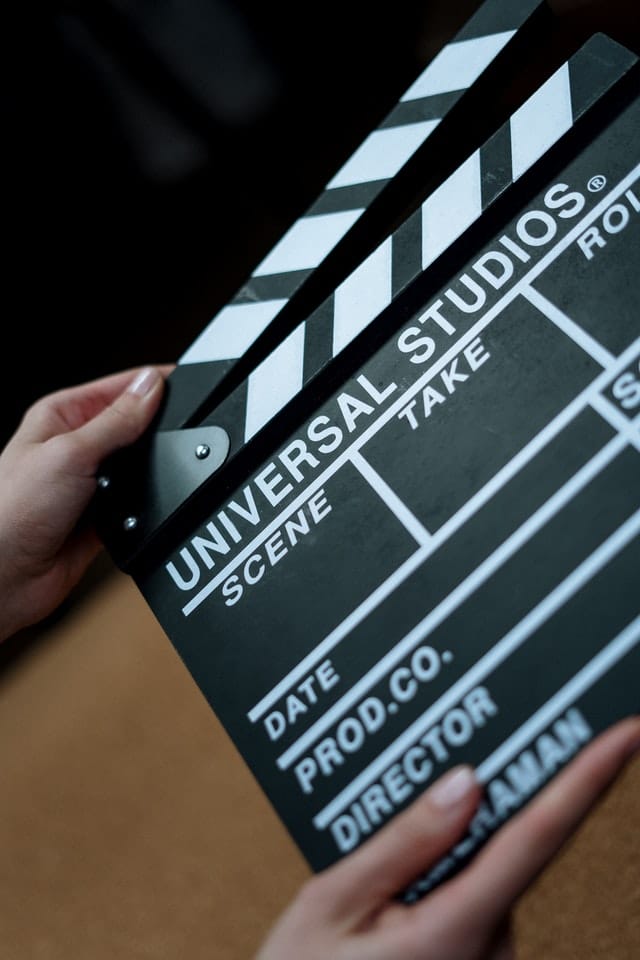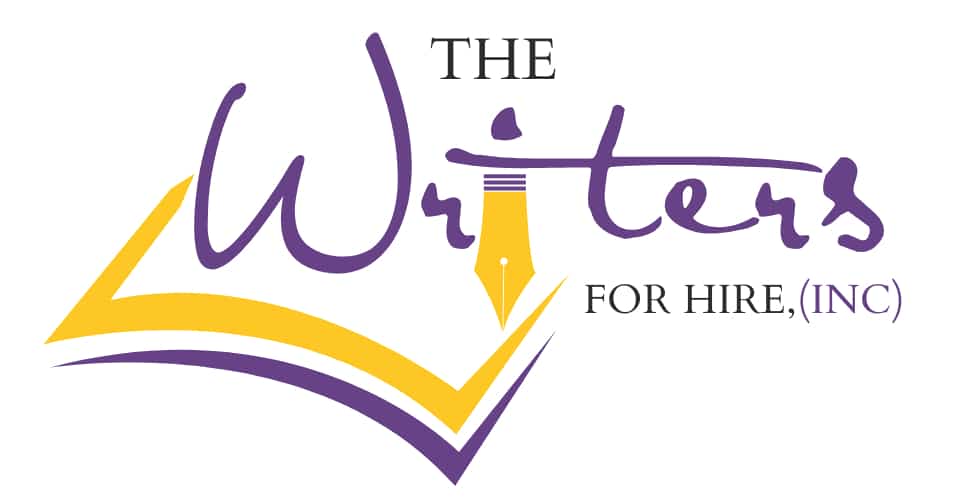4 Surefire Ways to Keep Your Nonfiction Book Project on Track
November 16, 2021
It is an inevitable reality that all nonfiction manuscripts hold the potential for work-stoppage and long-term shutdowns along the way to completion.
It doesn’t matter if you are a commissioned writer working on an assigned topic.
It doesn’t matter if you are an independent researcher, intrigued with the subject matter, thirsty for further discovery, and eager to share your findings with the world.
It doesn’t even matter if you are a world-renowned authority with the capacity to type out an entire textbook on your field of expertise from memory alone.
Writer’s block and other intangible obstructions can halt anyone’s writing progress at any time.
Quite often the culprit behind such shutdowns is a lack of inspiration.
Fiction writers famously suffer from this affliction—writing themselves into corners or losing sight of where they wanted to take their characters, but nonfiction writers are equally susceptible.

Works of nonfiction differ from their fictional cousins in the sense that their stories are already written. The facts are known. The timeline is in place. A guidebook already exists that you could follow and interpret as a means of fleshing out your nonfiction manuscript.
The trouble for nonfiction writers arises when confronting certain realities of their craft. Despite the convenience of already having the whole story and all the facts and figures, one must decide exactly what information to cover, explore, and illuminate. They must also choose the most effective and engaging order in which to relay this information.
Not every detail can make the cut. Nonfiction authors must decide what elements of the larger story to exclude based on weight, and how to most effectively link up the elements that remain.
If you’re working on nonfiction, it’s safe to assume that you’ve surrounded yourself with other published books, folders packed with documents, piles of your own notes, and more than just a few computer files.
Without a firm, well-thought-out framework for tying your source materials to your own writing underneath it all, it’s easy for your entire project to get away from you.
Unfortunately, unfinished works of nonfiction that get unruly during the writing stage have a real knack for staying unfinished.
Creativity, artistry, and entertainment are also not strangers to the realm of nonfiction. Failing to adequately tend to these essential components (relative to the subject matter at hand) will only produce a snooze-inducing final draft in the end.
Letting go of the fun factor within a work of nonfiction is also a guaranteed method for thoroughly killing whatever inspiration you had left to finish writing it.
It doesn’t matter what particular genre of nonfiction you’re grappling with. It also doesn’t matter if you’re an expert, a researcher, or simply working towards completing an assignment. By putting into practice all four of the methods detailed below, you’ll manage to stay organized, on schedule, and inspired along the way.
4 WAYS TO KEEP YOUR NONFICTION BOOK PROJECT ON TRACK
1. Plan your attack.
All works of nonfiction are essentially histories. They merely differ in scope and level of magnification.

It doesn’t matter if you intend to document all the major world events between The Big Bang and yesterday or just the evolution of speed boat racing in Nevada—you’ll need to start with an attack plan regardless of your chosen focus.
What is an attack plan exactly? Unfortunately, there is no “exactly” in this case.
Attack plans come in many shapes and sizes. They can be written documents, hand-drawn flow charts, memorized lists, mantras that you regularly repeat to yourself, or codes that you adhere to strictly when writing your piece.
How you craft your attack plan depends on your answers to four basic questions:
- Where does the story I’m telling begin and end?
- Where does it really begin and end?
- Who am I telling it to?
- How am I going to tell it?
If you have yet to begin your nonfiction project, answering these questions is a strong starting point. Meditate on them for a while before ever putting ink to paper.
However, even if you are three-quarters of the way through the lengthy book that you thought you were writing but have suddenly realized that you are actually in a massive quagmire of dead-ends and disillusionment, all is not lost.
Now would be the perfect time for you to go back, consider these four questions, and let them guide you through a newly inspired revision of the hard work you’ve already put in.
Let’s take a closer look at these questions and how your answers to them can guide your writing into a more vibrant and dynamic final form.
Who am I telling it to?
The intended audience of a written work must always be at the forefront of the author’s mind all the while he or she is composing it.
Nonfiction is a term with a wide range of definitions that encompasses anything from primary school educational material to graphic explorations of horrific murder cases that shocked the world.
Conversely, there are publications out there that cover the same coursework as an average K-12 curriculum, but are written specifically for adults, just as there are other nonfiction subcategories like True Crime for Kids.
When writing a piece for fellow scholars, you wouldn’t trail off on explanatory tangents to catch them up on concepts that they should already thoroughly comprehend, just as you wouldn’t let your writing get too salacious for an audience of young adults.
Knowing who you are writing for beforehand, and keeping them in mind during the entirety of your writing process, will keep you on point and on schedule while avoiding the pitfalls of veering in and out of the appropriate territory.
How am I going to tell it?
As a nonfiction writer, you need to pick a formula or a flavor for your project and stick with it throughout its development.
Will you stick to a textbook rigid description of the people and events in your story, or will you add some flair and humanity to it?
Nonfiction books that bring to life the places and characters described within them are fully capable of remaining equally factual.
Consider “setting the scene” as an introduction to each new chapter in your nonfiction book.
Look up the historical weather data for a particular time and place and incorporate it into your description. Make use of documented quotes from the prominent people in your story as dialog the same way a novelist would use it in theirs.
Of course, you should also be careful to avoid over-writing. You don’t want to bog yourself down by sharing the full biographies of each new side character that plays a part or the full history of each new location you introduce.
Knowing just how you want your work to read right from the start will help you to stay focused on writing in the same consistent voice the whole time.

If you have already written a substantial portion of your book, go back through it to make sure its voice is unified, and adjust it accordingly if it is not.
Beginnings and Endings
Lastly, you need to consider how your information is arranged for the reader in regard to time.
No matter the topic, your nonfiction book will have an exact chronological timeline to it.
For example, if you are mainly writing about a series of events that took place between 1976 and 1982, but there is one crucial anecdote that took place in 1954 and just one more in 1999, your timeline is 1954-1999.
Prescribing an order for the events in your book is essential to keeping on track and maintaining a steady flow to your writing.
There are numerous story structure options to choose from for your nonfiction project. Let’s examine four possible structures that are often implemented by popular fiction:
- The Inverted Checkmark
- The Interrupted Timeline
- The Circular Timeline
- Parallel Worlds
The Inverted Checkmark is arguably the most common.
Imagine a check mark, now turn it upside down. The story that you tell could follow along the same shape.
The action of the story takes place in chronological order, and it intensifies as time goes on. Eventually, the action meets its peak; then there is a turning point followed by a quick resolution. The Hollywood blockbuster The Matrix follows this formula perfectly as the main character is plucked from his dull life and dropped into a dangerous new world. A series of increasingly difficult challenges reveals the full extent of his powers. He then uses those powers to defeat the foes who have plagued him from the beginning.
The inverted checkmark is a classic pattern that translates well for any tale of overcoming adversity.
The Interrupted Timeline can be adopted when your nonfiction story is perhaps more interesting and illuminating when told out of order.
This technique can be observed in the movies Memento and Pulp Fiction. In both instances, the events of only a few days are shown as out of order as they can be.

The choice to go with an interrupted timeline can keep the audience on their toes.
It forces them to pay attention to every small detail.
In the end, they are rewarded with a satisfying conclusion that answers all of their remaining questions.
The Parallel Worlds template is effective when initially unconnected stories are told simultaneously.
Ford vs. Ferrari is an example of a parallel worlds story: It documents the trials of automotive racing designers, an ocean apart, who eventually go head-to-head with their creations at Le Mans.
In Stephen King’s IT, the barrier is time rather than distance: He tells the story of just one group of people, but each chapter of the book alternates between their experiences in the 1950s and their present day lives set in the 1980s.
The Circular Timeline begins at a key point in the story. It then cuts back to another starting point earlier in history. The majority of the story is then told all the way back to where it began.
Saving Private Ryan and Forrest Gump make use of this timeline. Tom Hanks just happens to star in both of them, and both movies also won handfuls of Oscars.
Maybe a circular timeline is the best choice for your story as well!
Allow your attack plan to manifest itself in whatever form you think will work best for you and your natural tendencies. Just keep it in your head or write it down and tape it to the side of your monitor.
The real secret to a successful attack plan is sticking to it.
As a partner in the endeavor to produce a nonfiction book, your attack plan will constantly remind you to add the ingredients that your work is lacking, and it will give you permission to discard whatever it is that’s dragging it down.
2. Let your outline evolve.
Outlines are to books what engineering schematics are to finished mechanical devices.
Name a product. It won’t matter which one you choose.
The best blenders, dishwashers, cordless drills, Corvettes, and curling irons all began their lives on drawing boards.
Countless great books began their lives as outlines and your book most likely will too.

An outline is an extremely pared-down version of an entire book. A traditional version follows all the rules of Roman numerals and indentation that you learned in high school, but this is your book, and you are free from such academic shackles now. Let your outline look however you want it to.
What’s really important is that you write one.
Write out your outline in whatever format you think will work best for your project and work style. If the right format doesn’t exist, make up your own. It doesn’t matter if it doesn’t make sense to anyone else, as long as it makes sense to you.
A completed outline that details your entire book from start to finish will give you an aerial view of all the chapters you intend to write and the finer points contained within them.
As you write your book, refer back to your outline like a checklist. It will serve as a reminder of all the topics that you originally wanted to discuss and explore.
The next most important step is to let your outline evolve.
As your book grows in length, it’s a guarantee that you’ll also come up with new ideas. The research that goes into nonfiction books never really stops, even as they’re being written, so it’s likely that you’ll make additional discoveries, even late in the writing stage.
When new information like this arises, consult your outline. Decide where it can be plugged in. If there really isn’t a suitable space, make a new one.
If your outline starts begging for a more visual existence, let it happen. Draw boxes and connect them with squiggly arrows—do whatever you need to do to keep the inspiration flowing.
If you find yourself fantasizing about markers and big white dry erase boards, get a dry erase board and wheel it into your writing room! If the cost of a brand new one is a turnoff for you, consult your local Craigslist or Facebook Market page. You’ll be shocked by how widely available and inexpensive they are second-hand.
If pinning papers into cork is more your speed, take some picture frames off the wall, hang up a corkboard for the time being, and get pinning! Yes, we’re having a little fun here, but this is not insincere advice. There’s a reason that you see whiteboards and corkboards in every “behind the scenes” documentary or FBI drama—they work!
With an up-to-date outline in your arsenal that is set up just how you want it, your nonfiction book project will be heavily fortified to stay right on track.
3. Live the lifestyle.
Setting out to write a nonfiction book shares many similarities with starting a new diet plan or fitness regimen. You will not find success unless you stick to it and welcome it in as a new part of your daily life.

The first step is to establish some kind of a deadline.
People set health and fitness goals for themselves all the time. “I want to be 20 pounds down by Thanksgiving” or “I want to see my abs in the mirror by summer.”
Set the same kind of goals for your book project.
Go easy on yourself at first. For the completion of the project in its entirety, pick a reasonable date as far off in the future as you think you’ll need and keep it in the back of your mind.
After the big date is set, you have to focus on developing your habits. You’ll get back to setting smaller goals for yourself later.
First, you’ll need to decide how you’re going to put this book together.
Inspiration comes in spurts that have to be acted on as soon as possible. It’s most likely that your book will assemble itself organically from a long string of these random moments.
A good practice is to keep a master folder for your book right on your desktop. Inside it, set up additional folders for your outline, notes and ideas, individual passages, and the rough draft.
Categorizing the separate elements of your book is a handy system for managing your thoughts as they develop. You should establish a system for capturing these moments as well.
Try to carry at least a pen and paper with you at all times to jot down notes throughout the day. Fold the notes into your wallet or purse and transcribe them into one of the folders on your computer when you get back home.
In the 80s and 90s, it was quite possible that every single writing guru of the era recommended carrying a miniature cassette recorder for keeping a voice record of your random inspirations. With present day smartphones, we have the luxury of numerous voice recording or voice-to-text apps capable of that very same function and much more.
Many established writers suggest writing every single day. While that may come naturally for some, it’s not feasible for others. You may prefer writing every other day or maybe your best work comes from marathon writing sessions every weekend.
Follow your inclinations and stick with what works best for you, but it is definitely recommended that you do something for your book on daily basis.
Check out research books at the library, look over your notes and cross off entries you’ve already taken care of, schedule an interview, or clarify recent additions to your outline.
Spend at least a few minutes on the project every single day to keep it going as a part of your daily routine.

Keeping a progress journal is another technique for ensuring the continued momentum of your nonfiction project.
It might sound redundant, writing about your writing, but this doesn’t mean multipage, long-winded reflections on your progress for the day—a single line entry is sufficient. Doctors and research scientists keep progress journals. Even Alex Honnold—the world-class mountain climber who famously scaled the face of Yosemite’s El Capitan without a rope—attributes some of his success to the practice of keeping a daily progress journal.
It’s also important to listen to your inspirations. If you feel obligated to keep chugging away at a particular chapter, but an idea for a passage in another section of your book keeps distracting you, follow it and get the gist of it down in the moment—you could lose it by putting it off.
The time to set new deadlines is when the writing stage of your book is officially underway. Take your schedule into consideration and weigh it against where you’re at with your manuscript. Calculate a reasonable accomplishment for the timeframe available and then increase it by one percent.
If your goal is to finish a certain chapter by the weekend, challenge yourself to also write the introductory paragraph for the next one.
Setting the bar just one small step beyond your initial goal each time will keep the momentum of your progress rolling.
4. Secure your support system.
Finally, it would be in your best interest to assemble a support team for your nonfiction project.

Reach out to friends and family members. Inquire as to whether or not they’d be willing to read and critique portions of your book as you write them.
If it’s in the budget, you may want to also consider hiring editors and proofreaders for a more professional analysis of your output.
If you find yourself in a creative rut with particular segment of your book, outsourcing it to a professional ghostwriter might be just the thing to get you over the hump.
Working with others, and making firm commitments to them along the way, will definitely keep you writing.
By combining all of the methods detailed in this article, you’ll surely keep your nonfiction book project on track.































